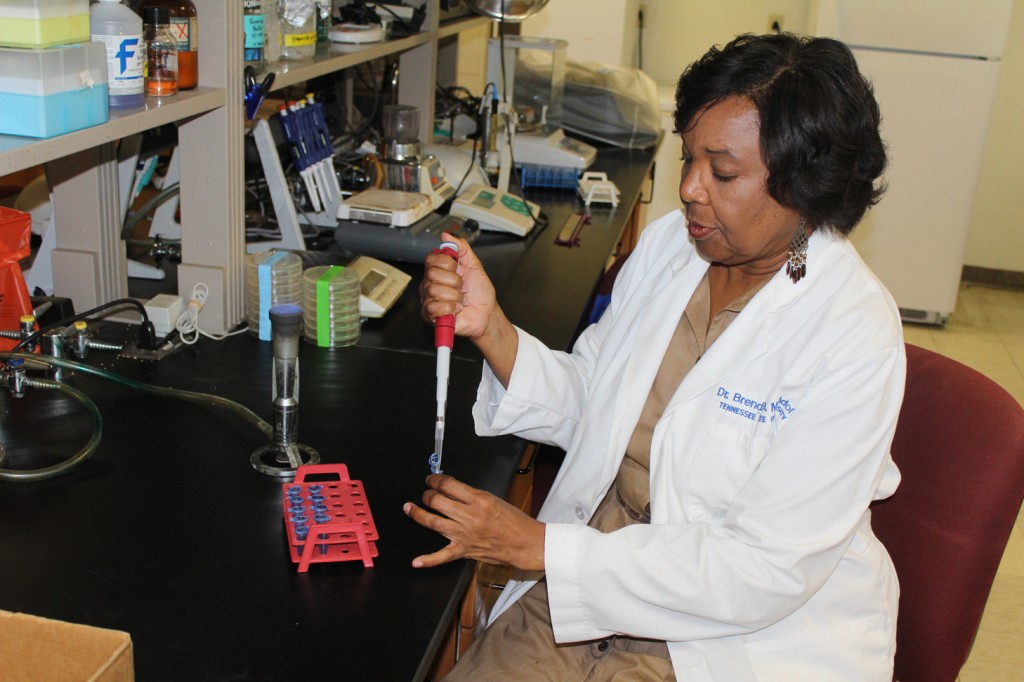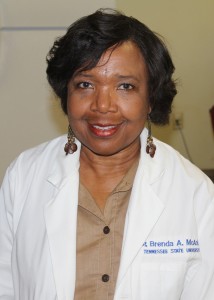
NASHVILLE, Tenn. (TSU News Service) – Schizophrenia and attention deficit hyperactivity disorder are two major diseases that affect millions of Americans. Studies show nearly 2.4 million American adults have schizophrenia, according to the National Institute of Mental Health, while 8 to 10 percent of all school-aged children born in the United States suffer from ADHD, a common behavioral disorder.
But understanding the exact causes of diseases like these, which affect the nerve cells in the brain, have been debated for nearly a century. Scientists think they may finally be closing in on answers.
A Tennessee State University scientist, working with other researchers at Johns Hopkins Medical Institute in Baltimore, said through a normal process called “axon pruning,” which is the removal of “excess” nerve cells in the brain, the causes of these diseases could be eliminated.

Dr. Brenda S. McAdory, a cell and neurobiologist and associate professor in the Department of Biological Sciences, explained that, during development, nerve cells make more connections with each other than are needed, therefore, some connections must be removed for the brain to function or communicate efficiently.
“If these connections are not removed, then a human may display certain brain disorders such as Schizophrenia and/or attention deficit and hyperactivity disorder,” said McAdory, who for the second year in a row, has been awarded a summer visiting professorship at Johns Hopkins, under the sponsorship of the American Society of Cell Biology.
Working in the lab of Dr. Alex Kolodkin, a renowned Howard Hughes Professor of Neuroscience, McAdory and her fellow scientists studied the role of the protein beta 2 chimaerin in axon pruning that occurs in mice during postnatal development.
“The results of our studies indicate that beta 2 chimaerin does indeed play a role in axon pruning, the lack of which has been linked to diseases such as schizophrenia and ADHD. Our task now is to determine how beta 2 chimaerin leads to axon pruning,” said McAdory. “Once we understand the molecules inherent in causing this disorder, then we can begin to work for a cure or treatment.”
She said, as part of the relationship with the Johns Hopkins Medical Institute, a portion of the cutting-edge research will be continued at TSU involving biology students.
“This collaboration will give our students resources at Johns Hopkins that could lead to opportunities for graduate studies, as well as grant opportunities for funding at TSU in other areas of molecular biology,” McAdory added.
The TSU professor was one of only four chosen nationwide in a competitive selection process for the nearly nine-week (June 3 – Aug. 9), $17,500 ASCB visiting professorship award. Results of the nine-week visiting professorship will be presented in an oral mini-symposium at the annual meeting of ASCB in New Orleans in December.
Department of Media Relations
Tennessee State University
3500 John A. Merritt Boulevard
Nashville, Tennessee 37209
615.963.5331
About Tennessee State University